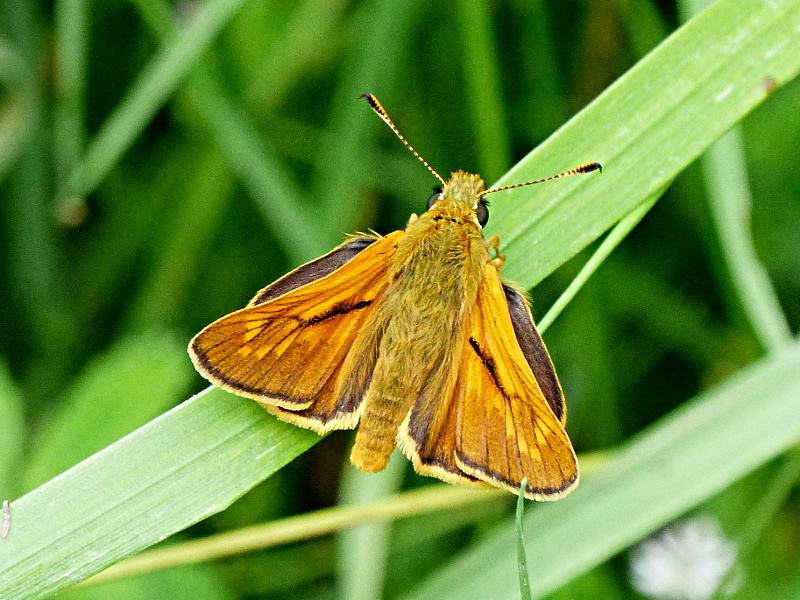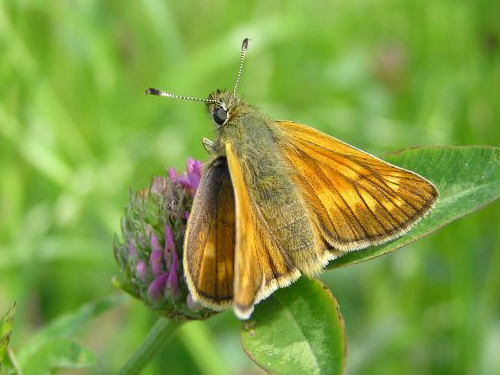
Widespread but declining resident

Distribution and Status
The Large Skipper appears to be coping better than our other 'golden' skippers in our area. In the 1980s it was well distributed in Hertfordshire, and in Middlesex, mostly in the north and east. It had spread into other areas in the 1990s whilst disappearing from parts of north-east Hertfordshire. It became slightly more abundant since the beginning of the century, but a notable decline has occurred since 2015 either because of loss of suitable habitat or changes in agricultural practices. In 2023, sites with the highest counts were mostly in woodland areas. Like the Small and Essex Skippers, nectar sources are important for females to develop their eggs (Field et al.)

Habitat Requirements
Unimproved grassland, for example on roadside verges, woodland clearings, railway embankments and waste ground but it prefers shadier sites than the Small and Essex Skippers
Larval Foodplants
Cocks-foot Dactylis glomerata is the preferred foodplant in our area, but False Brome Brachypodium sylvaticum and Purple Moor-grass Molinia caerulea are also occasionally used
Adult Food Sources
Common Bird's-foot Trefoil Lotus corniculatus, Bramble Rubus fruticosus agg., Red Clover Trifolium pratense
Behaviour/Observation notes
Like the Small and Essex Skipper, early mornings and evenings, or cloudy weather are good times to find this species
Life History
The butterfly generally emerges in June with a long season lasting until the middle of August. The last week of June is the peak period as indicated on the chart. The eggs are laid beneath leaf blades in sunny sheltered situations. Larvae hatch from the end of July to form tubes from several leaf blades and enter hibernation in this stage. Pupae are formed within cocoons using silk, in late spring

Further information
Photo gallery
Branch Annual Report (2023)
Identifying Skippers
UK distribution map
Full list of larval hostplants (Hesperidae)
Stevenage butterflies - additional notes
Account for 2022